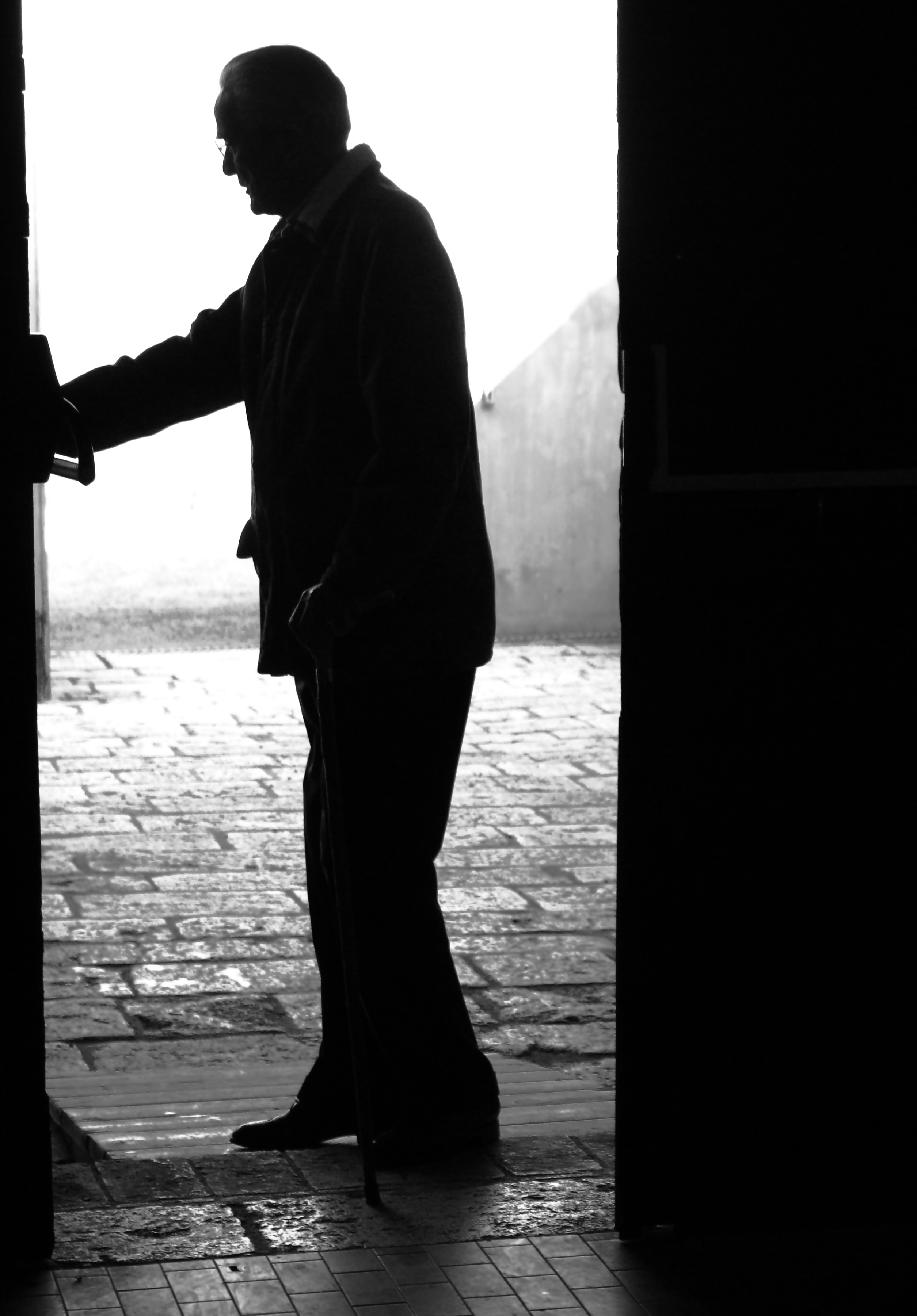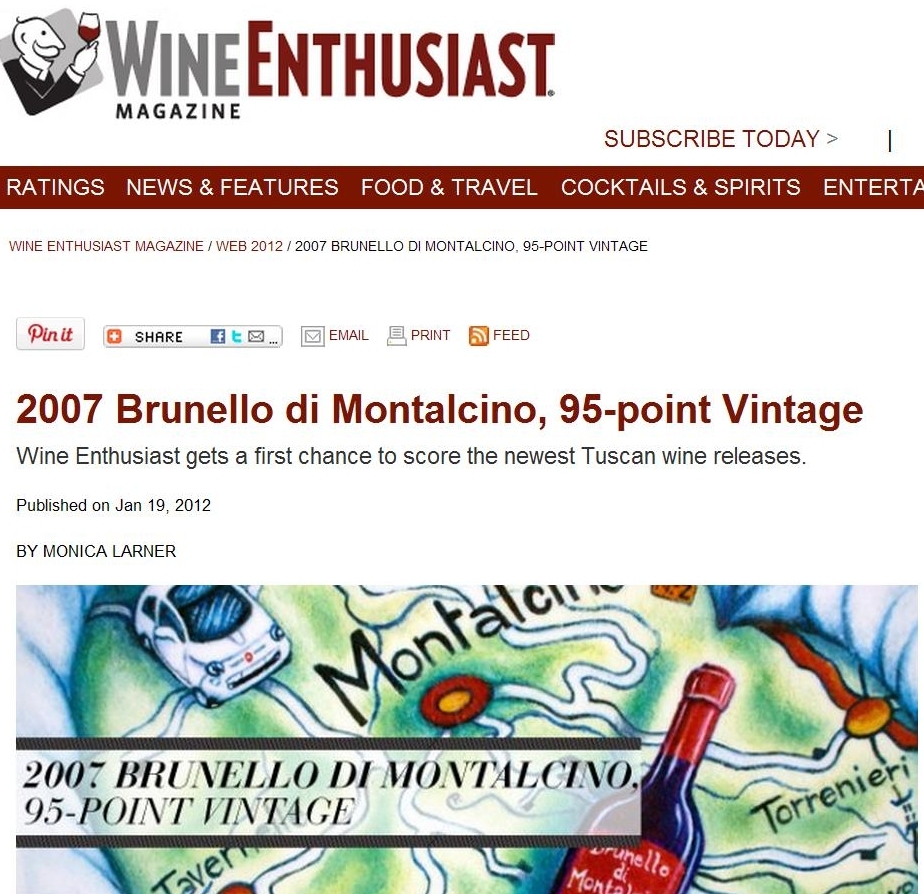The Italian disease
Posted on 17 February 2012
As you are reading this post an open letter is being sent to the Consorzio del Vino Brunello di Montalcino, the regulatory body of this famous Italian wine appellation, in which I with other wine writers protested against the lamentable practice of organising a fast-track tasting of new vintages for select publications such as the Wine Enthusiast and James Suckling (the story was first brought up by Franco Ziliani and Fred Nijhuis).
Open letter to the President of the Consorzio del Vino Brunello di Montalcino
We, the undersigned international wine writers, express our discontent and indignation with the fact that the Consorzio del Vino Brunello di Montalcino has allowed and supported correspondents of some wine publications in tasting the new vintage of Brunello, 2007, before the official presentation at Benvenuto Brunello this third week of February.
With all due respect to our colleagues from those publications, we find it inappropriate that they would be given the opportunity to taste the wines and publish their opinions in advance, benefitting from the logistic support of the Consorzio that other writers do not have. It is simple bad practice to treate some publications better than others, and doing a disservice to the image of Brunello di Montalcino.
signed: Wojciech Bońkowski [and other wine writers]
I understand readers of my blog might care little whether Mr. Smith tastes Brunello before Mr. Jones. After all, wine writers are there to provide a service to readers, and the minutiae aren’t really relevant. But this latest move from the Brunello consortium (following on a similar action last year) is just another manifestation of a disease that is poisoning Italy: lax standards.
Another symptom of the same disease is currently undermining the Italian wine industry as a whole: absenteeism. I have recently returned from Verona where I attended the official presentation of the new vintage of Amarone, one of Italy’s major wines. But the event was boycotted by nearly all the leading Amarone producers, starting with Masi who controls 20% of Amarone production. In Vino Nobile di Montepulciano, the absentees include La Calonica, Le Casalte, Crociani, Innocenti, and puzzlingly also Avignonesi and Fassati, two of the largest producers of the DOCG (although I’m told by Avignonesi that they simply didn’t bottle any 2009 Nobile). Chianti Classico has succeeded in cleaning the house since its two competitive regulatory consorzios finally merged in 2005 after years of dispute, and many famous producers who formerly refused to join the tasting are now in. But there is still a number of embarrassing absences including household names such as Cennatoio, Casa Emma, Livernano, Castello dei Rampolla, Rietine, Vecchie Terre di Montefili, Villa La Selva as well as the million-bottle Marchesi Antinori who ironically doesn’t belong to the consorzio at all.
The situation is at its most ridiculous in Brunello di Montalcino, where maybe 35% of the best estates are not participating this year. I don’t want to downgrade those who are, but a Brunello presentation without the wines of Biondi-Santi, Soldera (arguably the region’s two top names, they have never taken part), Altesino, Campi di Fonterenza, Casanova di Neri, Castelgiocondo, Cerbaiona, Ciacci, Collosorbo, Costanti, Pian dell’Orino, Piancornello, Pieve S. Restituta (Gaja), Poggio di Sotto, Salicutti, San Giuseppe, Valdicava, Vitanza… It is like Champions’ League without FC Barcelona, Real Madrid, Milan, Inter, Man Utd, Chelsea, Bayern, FC Porto and Lyon (with all due respect to Glasgow Rangers).

Please adhere, Maestro!
Why their absence? Some are very small operations and presumably the cost of participation, a four-digit sum in €, is a burden. Others don’t have the wines bottled and ready (Soldera), although they could show a barrel sample as is universally done elsewhere (a lamentable practice though). One winery I asked quoted ‘logistical reasons’ behind their absence (after impudently inviting me to visit the winery and taste the wine there). In essence these absentees are simply playing solo. They only want to promote their own brand, and see a comparative blind tasting as a potential threat to their ‘reputation’. If the wine comes up at the top, it’s no real gain because it’s already there. If it’s outperformed by a lesser-known cheaper Brunello, there is harm. There is no spirit of cooperation or solidarity and most importantly, no feeling of sharing a common good: the name and international renown of Brunello.
Asked to comment on that, the consorzios of Chianti, Vino Nobile and Brunello hesitated between “we are striving to have as many producers as possible” and “no comment”. In part I understand them: there is little they can do, because consortia don’t have many powers against those who egoistically refuse to join the events, and because of the widespread Italian laissez-aller culture. Consortia are democratic institutions where the tangle of contradictory interests makes it virtually impossible to take any controversial decisions. This is not exclusively an Italian problem (France has the same, and even in civic-conscious Germany there are soloists who refuse to play in tune) but nowhere as outrageous as in Italy at the moment.

Want the word ‘Chianti’ on this label? Play by the rules.
This is where I miss a little bit of authoritarianism. Producers who refuse to take part in a key act of promotion such as the anteprima press tasting should receive a strong suggestion to relabel their wines as vino da tavola. If you choose to stay outside, stay outside full time. The very fact that a producer like Antinori is allowed to keep out of the consorzio, contributing nothing to the community but taking advantage of the brand power of Chianti Classico, generated by the common effort of hundreds of producers, is simply shameful. It is high time this finished. The authorities need to take a strong course on this.


